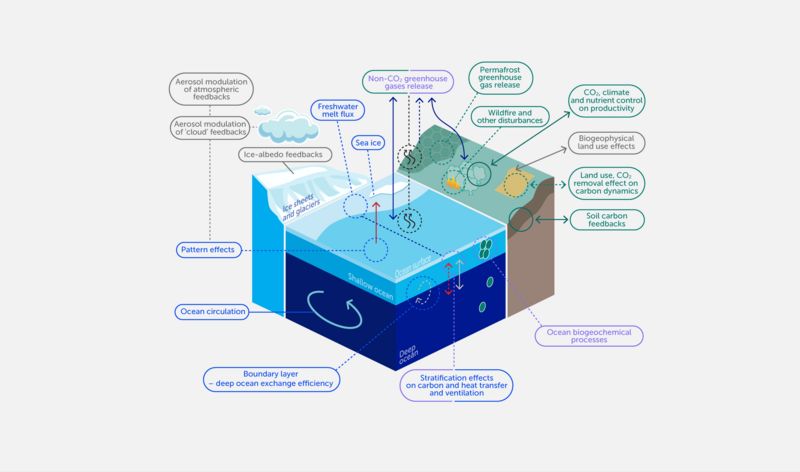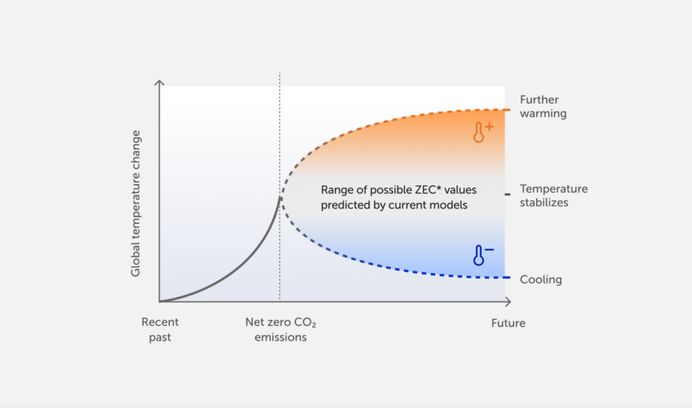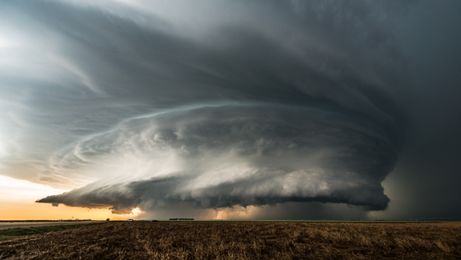
Frontiers in Science Lead Article
Published on 14 Nov 2023
The Zero Emissions Commitment and climate stabilization
- 52,988 views
- 42 citations


Frontiers in Science Lead Article
Published on 14 Nov 2023

At a Frontiers Forum Deep Dive session on 18 January 2024, Sofia Palazzo Corner, Prof Joeri Rogelj, Prof Martin Siegert, and other climate experts delved into the amount of temperature change we can expect after net zero, and how this can be built into climate models.

Prof Michael E. Mann, of the University of Pennsylvania, USA, explains how the lead article offers hope, reminding us that we have agency in averting climate disaster and that political obstacles to action can be overcome.

Prof Damon Matthews, of Concordia University, Canada, discusses why the Zero Emissions Commitment (ZEC) is a key metric to help quantify the climate response to CO₂ emissions and understand the requirements of climate stabilization.

Brook Dambacher and Tessa Khan, of Uplift, UK, examine the shortcomings of many governments in phasing out fossil fuels—and highlight community and multilateral efforts to curtail fossil fuel production.
Substantial uncertainty remains in both the sign and magnitude of the Zero Emissions Commitment (ZEC): the expected additional change in global surface temperature once we achieve net zero CO₂ emissions.
Uncertainty in ZEC has implications for the remaining carbon budget to stay below the temperature threshold of the Paris climate agreement: a positive ZEC reduces the remaining budget; a negative ZEC opens the door for more ambitious targets or more time to reach net zero.
The prospect of additional warming after net zero is both plausible and significant, with a chance that ZEC could exceed 15% of total global warming.
While a ZEC of 0 means no further change to global surface temperatures, other aspects of the Earth system, such as sea levels, will continue to change in a net zero world due to warming realized previously. These changes should be factored into the assessment of safe warming limits and adaptation plans.
Current climate models do not adequately represent the full scope of complex and interdependent Earth system processes that determine ZEC. The lead article presents a structure for quantifying uncertainty in ZEC and proposes a roadmap for future research into quantifying ZEC and reducing its uncertainties.

A summary of the lead article in a Q&A format, with infographics and a video.

A version of the lead article written for—and peer reviewed by—kids aged 8-15 years.

Ahead of the upcoming United Nations Climate Change Conference COP28, international experts map uncertainty in current climate modeling and propose a framework to better predict future global warming risk.

Significant warming could still occur after the world reaches net-zero carbon emissions, warn the authors of a new study.

Understanding how the atmosphere responds to rising and falling carbon emissions is a complex business, and now researchers have found taking longer to reach net zero could see global warming continue afterwards.

Many aspects of Earth’s system, including global temperatures, may feel the effects of warming even after net zero is achieved, according to a new study.
Follow the science, follow Frontiers in Science